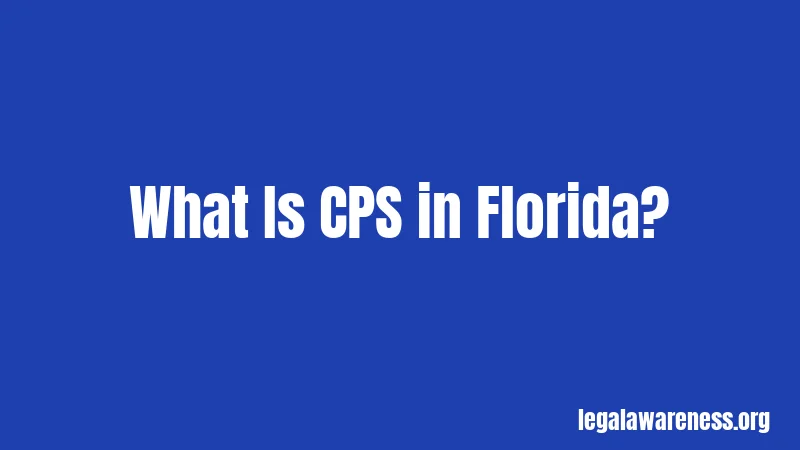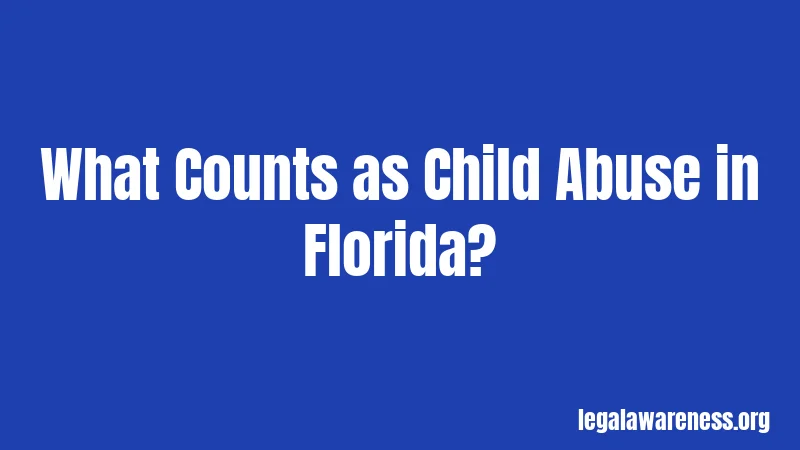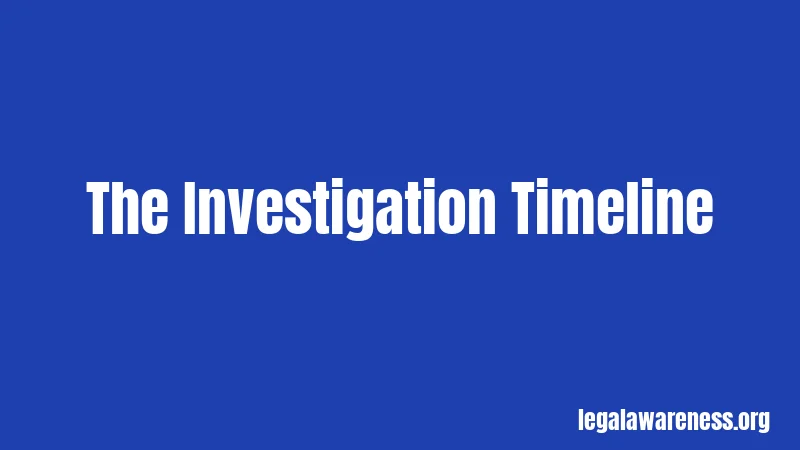CPS Laws in Florida (2026): Your Complete Survival Guide
Most people think CPS only gets involved in extreme cases. That’s not true. In Florida, Child Protective Services can investigate your family for things you might not even realize are reportable. The system is strict, and the consequences can turn your life upside down. Let’s break down exactly what you need to know.
Here’s the deal. Florida has some of the toughest child protection laws in the country. Understanding them isn’t optional if you’re a parent, work with kids, or just live in the state. Trust me, this stuff matters.
What Is CPS in Florida?

CPS stands for Child Protective Services. It’s run by the Florida Department of Children and Families (DCF). Their job is to investigate reports of child abuse, neglect, and abandonment.
When someone calls the Florida Abuse Hotline, CPS springs into action. They show up at your door. They interview your kids. They check your fridge and your home. It’s invasive, but it’s legal.
The system handled nearly 115,000 investigations in 2021-22. That’s a lot of families. You could be next.
Who Has to Report Suspected Abuse?
Okay, pause. Read this carefully.
In Florida, EVERYONE is a mandatory reporter. Yep, that’s right. Not just teachers and doctors. Everyone.
If you know or reasonably suspect child abuse, you legally must report it. No exceptions.
Special Mandatory Reporters
Some people have extra reporting duties. These include:
Doctors, nurses, and hospital staff. Mental health professionals and therapists. Teachers and school personnel. Social workers and daycare workers. Law enforcement officers. Judges (though they’re protected when acting officially). Animal control officers (yes, really).
These professionals must identify themselves when reporting. They can’t stay anonymous.
But here’s the thing. Even if you’re not a professional, you still have to report. Your neighbor. Your friend. Your coworker. Anyone who suspects abuse must call it in.
What Counts as Child Abuse in Florida?

Child abuse isn’t just hitting a kid. The law covers way more than you think.
Physical Abuse
Physical abuse means intentionally causing physical injury. It also includes actions that could reasonably cause injury. Hitting, shaking, burning, or any similar acts fall under this category.
Even if you didn’t mean to hurt the child, you could still face charges.
Emotional Abuse
This one surprises people. Emotional abuse includes actions that harm a child’s mental or emotional health. Constant criticism, rejection, or isolation can qualify.
Pretty straightforward, right?
Neglect
Neglect happens when a caregiver fails to provide basic needs. Food, shelter, clothing, medical care, or supervision all count.
It can be based on repeated actions or just one serious incident. One mistake can trigger an investigation.
Neglect also means failing to protect a child from abuse by someone else. If you know abuse is happening and don’t stop it, you’re liable.
Abandonment
Abandonment means leaving a child without proper care or supervision. The parent or caregiver makes no significant contribution to the child’s life. No contact, no support, no relationship.
Honestly, this is the most heartbreaking category.
Sexual Abuse
Any sexual contact or exploitation of a child qualifies. This includes physical acts, showing inappropriate materials, or using a child in sexual performances.
Sexual abuse must be reported immediately. No delays.
The Reporting Process
Sound complicated? It’s actually not.
How to Report
Call the Florida Abuse Hotline at 1-800-962-2873. Available 24/7. You can also report online through the DCF website. Fax reports to 1-800-914-0004 if needed.
Reports must be made immediately. Don’t wait until morning or next week.
What Happens When You Report
The hotline takes your information. They ask about the child, the suspected abuser, and the situation. They might ask for names, ages, addresses, and details about injuries.
Hold on, this part is important.
The hotline counselor decides if the report meets investigation criteria. If it does, they send it to local investigators. Within 24 hours, someone starts looking into it.
If the case involves immediate danger, investigators respond right away.
The Investigation Timeline

Here’s where it gets serious.
Initial Response
Investigators usually respond within 24 hours. For emergencies, they come immediately. They’ll show up at your home unannounced.
They interview the child. They interview parents and caregivers. They talk to siblings and other household members. They inspect your home. Fridge, bedrooms, bathrooms—everything.
Most visits are unannounced unless announcing the visit would endanger the child.
Investigation Completion
Investigations must wrap up within 60 days. That’s the maximum. Many finish faster.
During this time, investigators assess safety. They determine if abuse occurred. They decide what services the family needs.
Sometimes cases stay open longer. Missing children, pending criminal charges, or ongoing safety concerns can extend the timeline.
What Investigators Look For
Wondering if this applies to you?
Investigators evaluate several factors. Physical signs of injury or neglect. The child’s behavior and emotional state. The home environment and living conditions. Access to food, clean water, and medical care. Supervision and safety measures.
They’re trained to spot red flags. Unexplained bruises, malnutrition, poor hygiene, fearfulness, or lack of proper supervision all raise concerns.
Not sure what counts as a violation? Let me break it down.
Even things that seem minor can trigger investigations. Leaving a young child home alone. Not seeking medical treatment for injuries. Exposing kids to domestic violence. Drug use around children.
The standard is whether the child’s safety is at risk.
Penalties for Not Reporting
Now, here’s where things get intense.
Criminal Penalties
Failing to report child abuse is a third-degree felony in Florida. You read that right. A felony.
The penalties include up to 5 years in prison, up to 5 years of probation, and fines up to $5,000.
This applies if you knowingly and willfully fail to report. You can’t just ignore it and hope someone else reports.
Additional Penalties for Household Members
If you’re 18 or older and live with an abused child, you face the same felony charges. Living in the same house means you have a duty to report.
The court might find exceptions for domestic violence victims or other mitigating circumstances. But those are rare.
Penalties for Making False Reports
On the flip side, making a false report is also a third-degree felony. Same penalties apply.
You can’t weaponize the system to hurt someone. That’s illegal too.
But wait, it gets better. If you report in good faith, you’re immune from liability. Even if the report turns out to be wrong, you’re protected as long as you believed it was true.
Institutional Penalties
Schools and universities face massive fines for failing to report. A million dollars per failure. Yep, $1,000,000.
This applies when administrators or campus police know about abuse and don’t report it.
What CPS Can and Cannot Do
Let’s talk about your rights.
What CPS Can Do
CPS investigators can interview your child at school without your permission. They can inspect your home. They can request medical records. They can coordinate with law enforcement.
If they believe the child is in immediate danger, they can remove the child from your home. This requires probable cause, but it can happen quickly.
What CPS Cannot Do
CPS cannot enter your home without consent or a court order. If you refuse entry and they don’t have a warrant, they must leave. However, refusing access might prompt them to seek a court order.
They cannot force you to take a drug test without a court order. They cannot make you answer questions if you invoke your right to remain silent.
You have rights during investigations. Use them wisely.
Case Outcomes
Okay, so what actually happens after an investigation?
Unsubstantiated Cases
The case gets closed. No evidence of abuse or neglect was found. Your life goes back to normal.
Roughly speaking, this is the best-case scenario.
Substantiated Cases
Evidence supports the allegations. Now the real work begins.
CPS offers voluntary services. Parenting classes, counseling, substance abuse treatment, or other support programs. The goal is to fix the problem and keep the family together.
Dependency Court
In serious cases, CPS files a dependency petition. This starts a court process that can last a year or more.
The court appoints lawyers. Parents may get court-appointed attorneys, though these lawyers are often overworked. Private attorneys provide better representation but cost money.
A case plan gets created. This is basically a list of requirements parents must complete. Drug tests, therapy sessions, parenting classes, home inspections—all of it.
Court hearings happen every 60 days. You’ll be back in court constantly checking progress.
Child Removal
Only a small percentage of cases result in removal. But it happens.
When it does, children go to foster care or relatives. Parents must complete their case plan to get their kids back. The process takes at least a year.
Failure to complete the plan can lead to termination of parental rights. That’s permanent.
How to Protect Yourself
Don’t worry, there are ways to navigate this system.
Cooperate But Know Your Rights
Be polite and cooperative with investigators. Refusing to cooperate makes things worse. But know your limits.
You can record interviews. Ask before allowing home entry. Request clarification on any requirements.
Get a Lawyer
Seriously, get a lawyer. Court-appointed attorneys are free or cheap, but they’re swamped. Private dependency attorneys have time to actually help you.
A good lawyer can challenge evidence, negotiate case plans, and protect your rights in court.
Follow the Case Plan
If CPS creates a case plan, follow it exactly. Miss an appointment? That’s a violation. Fail a drug test? Another violation.
Document everything. Keep records of completed classes, therapy sessions, and drug tests. Proof helps your case.
Stay in Contact
Keep CPS updated on address changes. Return phone calls promptly. Show up for meetings and court dates.
Staying engaged shows you care about your child’s welfare.
Special Situations
There are some unique scenarios worth mentioning.
Domestic Violence Cases
If you’re a domestic violence victim living with an abused child, the court may find mitigating circumstances. You might not face failure-to-report charges.
But you still need to protect the child. That might mean leaving the abuser or seeking help.
Professional Reporters
Doctors, teachers, and social workers face additional scrutiny. Their training means they can’t accept innocent explanations that conflict with signs of abuse.
A parent saying “she fell” doesn’t fly when the injuries don’t match that story.
Anonymous Reporting
Most people can report anonymously. Hotline staff will ask for your name but won’t require it.
However, professionals who report must identify themselves. Teachers, doctors, and social workers can’t stay anonymous.
Common Mistakes to Avoid
Most people don’t realize how easily they can mess up.
Refusing Cooperation
Refusing to let investigators in your home seems smart. It’s not. They’ll get a court order and come back with more authority.
Better to cooperate from the start.
Lying to Investigators
Never lie. Investigators are trained to spot dishonesty. Getting caught in a lie makes everything worse.
If you don’t want to answer a question, say so. Don’t make up stories.
Missing Appointments
Case plans require completing specific tasks by specific deadlines. Missing appointments or failing to finish classes violates the plan.
Courts take this seriously. Stay on schedule.
Not Documenting Progress
Keep receipts. Save certificates from completed classes. Document therapy sessions. Without proof, the court might not believe you did the work.
Basically, treat it like a job. Paper trail everything.
Resources and Support
You’re not alone in this.
Florida Abuse Hotline
Available 24/7 at 1-800-962-2873. For reporting abuse or getting information.
Department of Children and Families
Visit myflfamilies.com for resources, forms, and guidance.
Legal Aid Services
Many counties offer free or low-cost legal help for dependency cases. Search for legal aid in your area.
Family Support Programs
Parenting classes, counseling, and substance abuse treatment are available statewide. CPS can connect you with local providers.
Frequently Asked Questions
What should I do if CPS shows up at my door?
Stay calm and be polite. Ask to see their identification. You can ask why they’re there before deciding whether to let them in. Consider contacting a lawyer before allowing a full interview or home inspection.
Can I refuse to let CPS talk to my child?
CPS can interview children at school without parental permission. At home, you can refuse to allow an interview without a court order. However, this might prompt them to seek one.
How long does a CPS investigation take?
Most investigations finish within 60 days. Emergency cases move faster. Complex cases with criminal charges might take longer.
Will I get my children back if they’re removed?
Maybe. It depends on whether you complete your case plan. Most parents who follow the plan and make necessary changes reunite with their children. Failure to comply can lead to permanent termination of parental rights.
What happens if someone makes a false report about me?
CPS must investigate all reports. If the investigation finds no evidence, the case closes. False reports made in good faith don’t result in penalties. Knowingly false reports are a felony, and you can report the person to law enforcement.
Final Thoughts
Florida’s CPS laws are tough. They’re meant to protect kids, but they can feel overwhelming for families under investigation.
Stay informed. Know your rights. Cooperate with investigators while protecting yourself legally. And if things get serious, get a lawyer.
Remember, most investigations end without serious consequences. But taking them seriously from the start makes all the difference.
Don’t panic. Just be smart about it.
References
- Florida Statutes Chapter 39 – Child Protective Services
- Florida Statutes Section 39.201 – Mandatory Reporting Requirements
- Florida Statutes Section 39.205 – Penalties for Failure to Report
- Florida Department of Children and Families – Abuse Hotline
- Florida Statutes Chapter 827 – Child Abuse and Neglect Definitions
